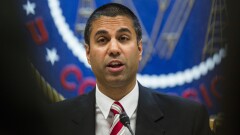President-elect Joe Biden’s victory has cleared uncertainty over White House policies that impact fintechs and payment firms, revealing clues as to how the regulatory environment will be different in 2021.
The election was not a “blue wave,” meaning that as of early November, Biden and the
In some cases, Biden's approach will federalize regulatory policy for emerging technology that has largely been in state hands thus far, providing more consistency for rules — even if firms don’t like the rules in all cases.
There are also campaign pledges, general policy positions and transition team additions that aren’t directly related to payments, yet will still impact the operating environment for these businesses, often in the direction of stricter supervision, rules designed to protect consumer interests and measures to eliminate bias.















